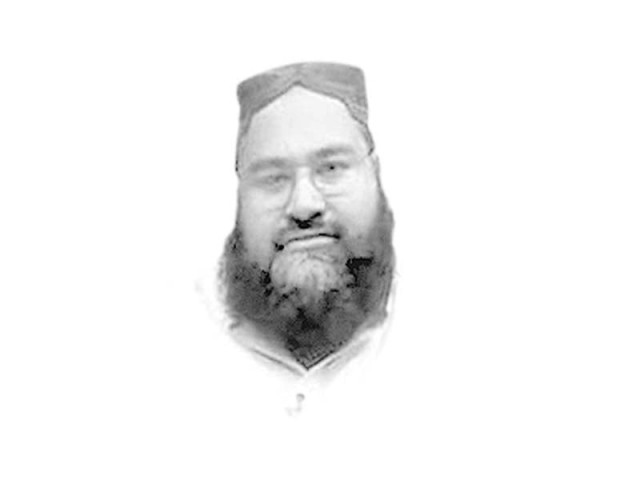Elimination of terrorism
Clerics should come forward with an alternative ideology to counter the extremist approach

The writer is chairman of the Pakistan Ulema Council
It is right to say that some Arab countries successfully contained extremist and terrorist mindsets in the context of their citizens but couldn’t shield their citizens from global perspectives of terrorism and extremism. If we endeavour to find out the root causes of extremism, we see that Muslims in the 1980s became divided along sectarian lines and eventually moved towards sectarian violence. The basic reason behind this transformation was the Afghan jihad and the Iranian Revolution.
On the one side, endeavours were made at the time to propagate the effects of the Iranian Revolution in the Muslim world and on other side, efforts were also carried out to contain the Iranian influence over Muslim countries. Resultantly, today the Muslim ummah is facing the consequences of the events that occurred during that era.
Similarly, the silence of the US, the UK and other European countries over Kashmir and Palestine, and the way thousands of youth, who were engaged in the Afghan jihad were left in the lurch, with the custodians of this jihad refusing to provide them a safe and peaceful exit, resulted in the promotion of terrorism and extremism in the region.
In the same vein, these ‘godfathers’ of democracy refused to accept the victory of pro-Islamic forces in Algeria. This also strengthened extremist forces and their thinking on whether Muslims should pursue US-sponsored democracy or evolve in their own way. Amidst this situation, the 9/11 attacks disturbed the Islamic world to a larger extent. The prevailing situation in the Muslim world and particularly in Pakistan is a result of post-9/11 events. On one hand, the Muslim youth has become hostage at the hands of different radical forces and on other hand — neither at governmental level nor at the Muslim clerics’ level — no cohesive and systematic effort made to protect the youth from these extremist forces.
Some Muslim organisations have initiated efforts to counter extremist thinking as per their available resources but this endeavour is on a very nominal level. The Pakistan Ulema Council has been carrying out a struggle to contain extremist thinking through a systematic campaign but at the government level, effort has never been made to support such campaigns against the militant mindset. The need of the hour is that those Muslim leaders and clerics, who are regarded with respect by the youth, should come forward and denounce the extremist mindset.
The most important thing is that clerics should come forward with an alternative ideology to counter the extremist approach, which motivates the youth to pursue the extremists’ defined version of Islamic belief. It is very necessary to review the issues relating to religious decree in all Muslim countries and centres of religious decree should be established at the national and world levels, which can assist Muslims with any sort of religion-related controversy and ambiguity and guide them as per the moderate way of thinking in Islam, contrary to the path that the extremists have adopted. If attention is not focused over this grave issue, there are chances that the youth could be attracted to extremists and become an easy target of terrorist ideology. Extremist elements are targeting the youth through social media but there is complete silence on countering such nefarious conspiracies and campaigns on the part of state departments and governments. It is also worth mentioning here that extremism and terrorism are no longer solely associated with religious seminaries and religious organizations: the Islamic State, al Qaeda, the Hizbut Tahrir, al Muhajeeron, the TTP and the Houthi tribes of Yemen have been associated with schools, colleges and universities worldwide. Similarly, the alleged masterminds of the Safoora tragedy in Karachi were also university graduates. Keeping in view all these perspectives, it is the need of the time to challenge the thinking of extremism in accordance with the teachings of the Holy Quran and for this purpose, Muslim governments, organisations and clerics must come forward with an explicit stance on defeating extremist thinking with the Islamic approach of tolerance, patience and forbearance. Otherwise, it will become impossible to defeat terrorism if the youth is further lured towards extremism. Is the Muslim world ready to think over its strategy seriously? This is the question which every Muslim needs to answer.
Published in The Express Tribune, May 30th, 2015.
Like Opinion & Editorial on Facebook, follow @ETOpEd on Twitter to receive all updates on all our daily pieces.














COMMENTS
Comments are moderated and generally will be posted if they are on-topic and not abusive.
For more information, please see our Comments FAQ